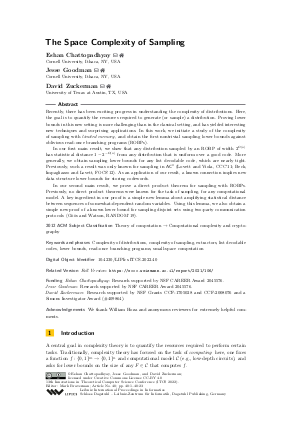LIPIcs.ITCS.2022.40.pdf
- Filesize: 0.8 MB
- 23 pages

 Creative Commons Attribution 4.0 International license
Creative Commons Attribution 4.0 International license





























Feedback for Dagstuhl Publishing